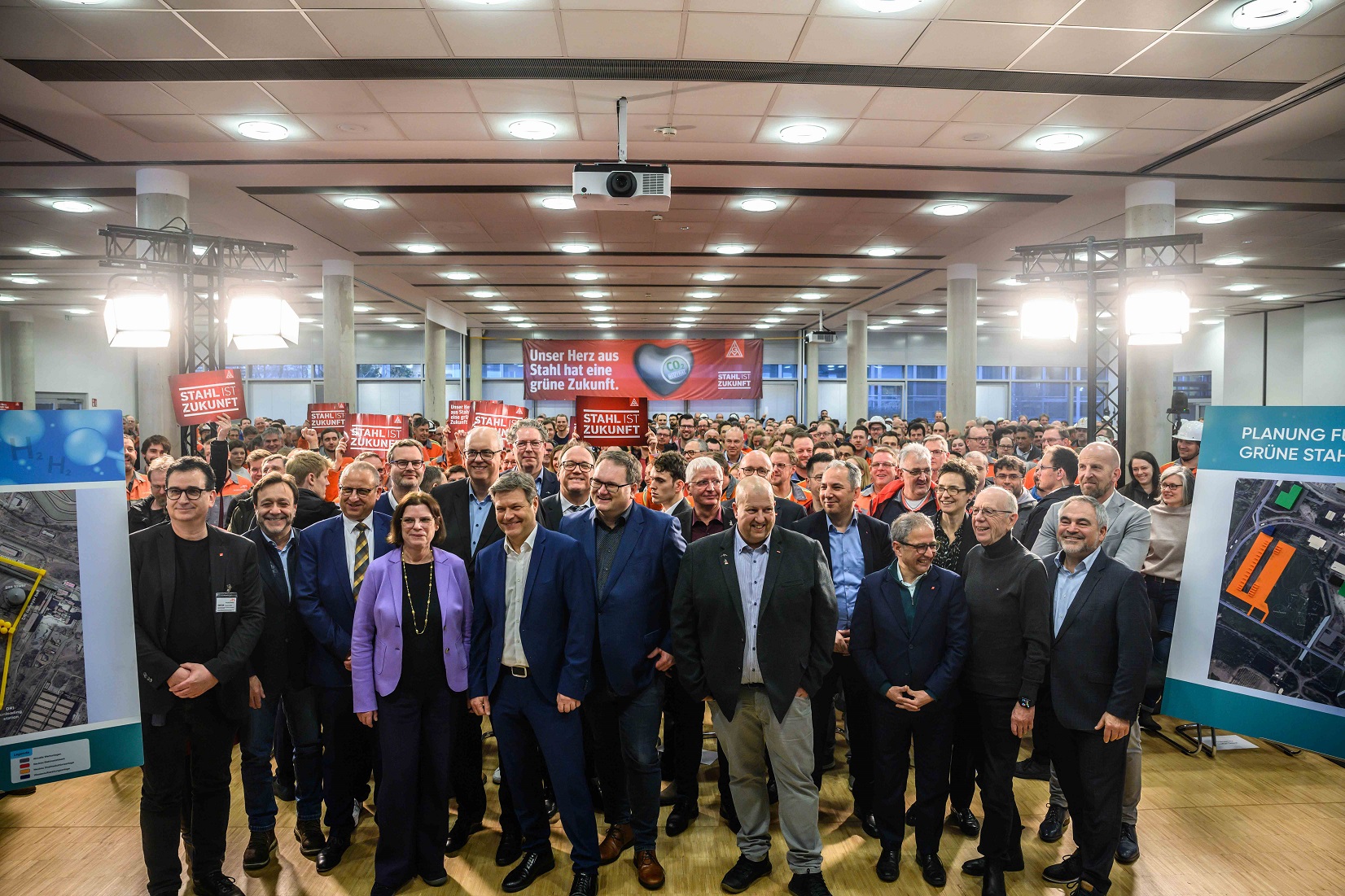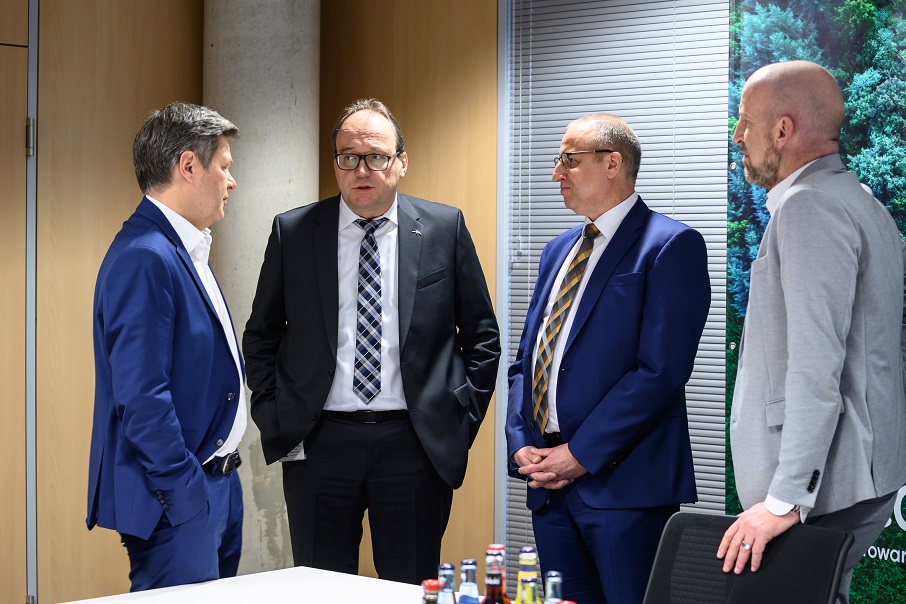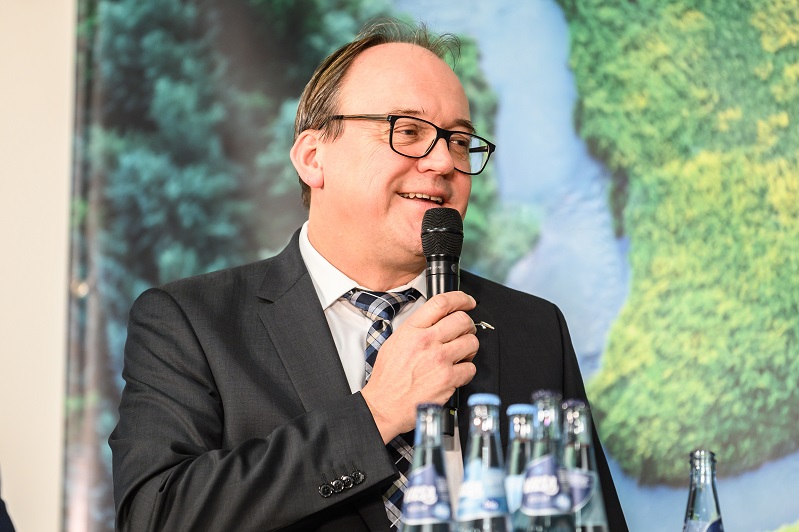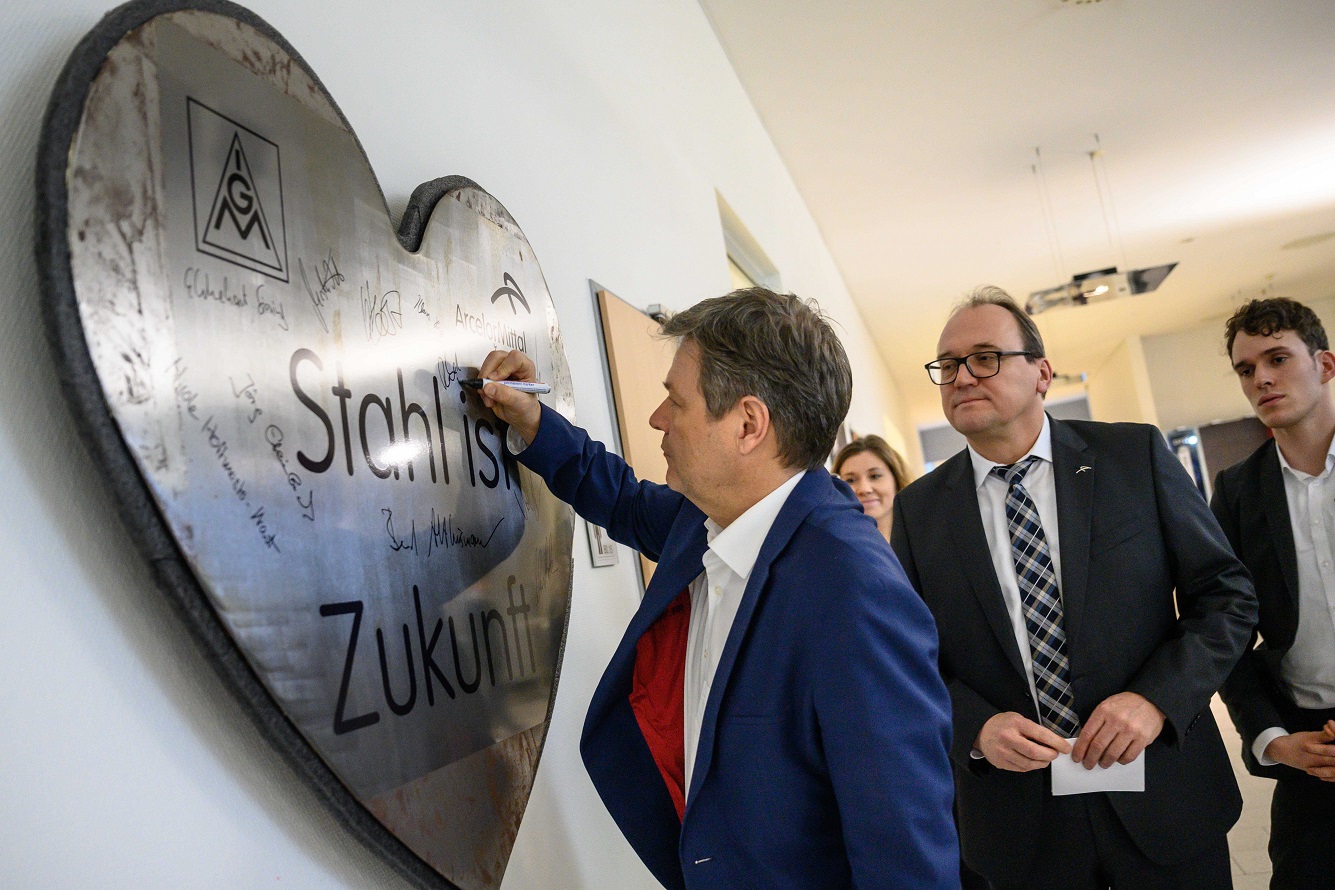
At the company meeting in Bremen, Minister for Economic Affairs and Climate Protection Robert Habeck holds out the prospect of funding.
The technological transformation of steel production is a key project for the future at ArcelorMittal. The Group had already developed a detailed conversion plan for the Bremen and Eisenhüttenstadt sites in 2021 and applied for financial support for the project. During an extraordinary works meeting in Bremen, Robert Habeck, Federal Minister for Economic Affairs and Climate Protection, has now promised financial support of 1.3 billion euros for the gigantic transformation project - subject to approval by the EU competition authority in Brussels. While further steps need to be taken before a final press release investment decision at ArcelorMittal, the news was greeted with joy - in addition to the management, works council and workforce, Bremen's mayor Andreas Bovenschulte and representatives of IG Metall were also present.
The CEO of ArcelorMittal Europe - Flat Products, Reiner Blaschek, commented: "With our Group strategy XCarb®, we are working on a pioneering project for the future of steel production - also in Bremen and Eisenhüttenstadt. After a long evaluation period with the authorities, we are pleased to be able to take the next step towards climate-neutral steel production in Germany with this news from the federal government: the first hurdle has now been cleared. By using green hydrogen, we could save more than 6.3 million tonnes of CO2 per year by 2030 and produce 3.4 million tonnes of CO2-reduced steel in both plants. The next hurdle will be sufficient quantities of renewable energy and green hydrogen - and this at competitive prices."
Dr Thomas Bünger, CEO of ArcelorMittal Bremen and Eisenhüttenstadt, adds: "With this announcement from Berlin, we can continue to work on preparing for the transformation of our sites. We are planning to reduce CO2 emissions by around 60 per cent by 2030. Now it's time to tackle the next steps for the transition together with our motivated local teams: We will press ahead with the detailed engineering planning in the next 12 months."
Mike Böhlken, Chairman of the Works Council at ArcelorMittal Bremen, says: "We welcome the fact that Robert Habeck has come to Bremen with this good message at the invitation of the Works Council and IG Metall. The federal government's signal is an important step in the right direction. Green steel is the future of the smelter. This path can only be travelled together with the workforce. Now we have to master this social transformation together."
Dirk Vogeler, Chairman of the Works Council at ArcelorMittal Eisenhüttenstadt: "The reconstruction of our plant in Eisenhüttenstadt is necessary so that we can continue to produce steel in Eisenhüttenstadt in the future. Our site is an important pillar for industry and employment in Brandenburg. We need financial support for the transformation as a clear commitment from politicians. This is an important signal to take our colleagues with us on the path of transformation, because without them we will not succeed!
Politicians will continue to be called upon to provide the conditions for affordable green hydrogen and electricity in sufficient quantities, which are required for the operation of the planned plants. The promised financial support of 1.3 billion euros relates to an overall project with an investment volume of around 2.5 billion euros for the two sites. There are plans to build electric arc furnaces in Bremen and Eisenhüttenstadt, which will produce steel using renewable electricity and increased use of recycled scrap. In addition, a direct reduction plant is to be built in Bremen, in which the primary product sponge iron is to be produced from iron ore, initially with natural gas and in the long term with green hydrogen. The sponge iron is to be used in Bremen and Eisenhüttenstadt to produce steel with greatly reduced emissions.

Habeck in dialogue with Reiner Blaschek (CEO ArcelorMittal Europe – Flat Products), Thomas Bünger (CEO ArcelorMittal Bremen and Eisenhüttenstadt) and Michael Hehemann (Labour Director ArcelorMittal Bremen)


Photo credit: Kerstin Rolfes